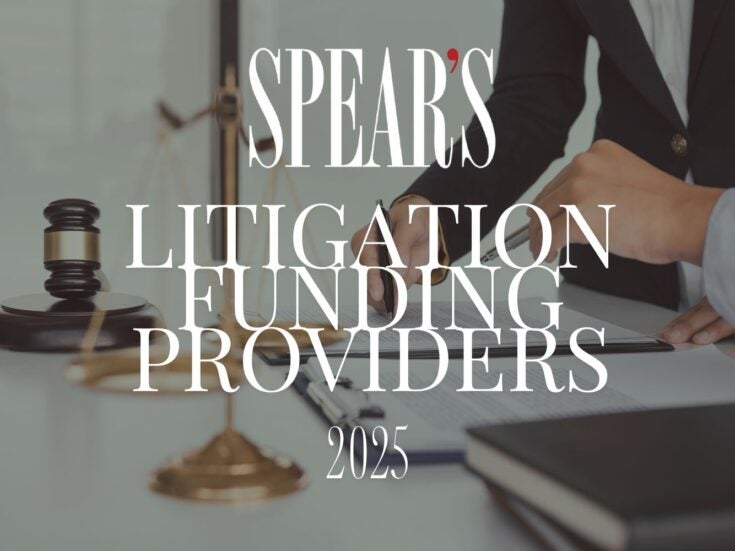
How does a trust turn into mistrust? When it’s time to divorce, says Fiona Wood
WHEN IT COMES to finding a suitable partner, trust is usually high on the list of desirable qualities. However, with the odds of UK couples enjoying long and happy marriages decreasing by the year, a very different kind of trust is becoming an increasingly desirable target by exes of the wealthy.
Many people understand the legitimate role which trusts play in preserving family wealth into the future. What is less clear is how they will be treated by a divorce court. In short there are different types of trusts and therefore all their details must be considered before you can decide whether a trust’s assets should be included in the matrimonial pot for dividing when a couple separate.
If a spouse does not stand to benefit from a trust – for example, a trust set up to benefit their children – and the trust itself does not look as though it has been set up to reduce the spouse’s assets for divorce purposes, it is usually accepted that the assets of the trust should not be included in the matrimonial pot. However, if someone has received or could expect to receive financial benefits from a trust, the courts could look to include its value.
A number of notable cases have dealt with the question of whether assets placed in trust, particularly the offshore variety, should be considered part of the matrimonial pot for dividing when couples separate. One of these cases involved John Charman, the CEO of AXIS Capital, who was ordered by the Court of Appeal to pay his former wife £48 million, as her divorce settlement. Although this amounted to less than half the matrimonial assets, it was more than he wanted to pay. Mr Charman argued that a trust which he established in Bermuda was a ‘dynastic’ trust from which he did not stand to gain. However, he failed to provide evidence to support this and, as a consequence, its value was added to the assets to be shared between him and his wife.
The complexity of trust arrangements can also lead to problems within divorce proceedings. There can be a perception that the trust is being used to reduce the pot of matrimonial assets, and therefore reduce an ex’s financial claim. Even judges in cases where they ruled that the assets of a trust should not be included in the matrimonial pot have not exactly dispelled the notion that trusts actually create mistrust. One said that courts should not carve up such assets “merely because the husband’s arrangements appear to be artificial or even ‘dodgy’”.
So, how can you protect the wealth you have built up without giving courts the impression that you are trying to pull a fast one? At the risk of a bad pun, the answer is a matter of trust. The key is the husband and the wife must both believe that they have been given a true account of the other’s property, investments and business assets. If it appears that their spouse is being totally frank, even cases involving complex trusts can be dealt with relatively simply. However, if they do not think they have the full financial picture, they are much more likely to aggressively pursue every last detail.
Courts can draw very negative and, as John Charman found, extremely expensive conclusions from the failure to provide full financial details. Simply arguing that as the assets are in trust and “they are, therefore, no longer mine”, will not benefit you. One very senior judge, in just such a case, declared “trusts neither impress, intimidate nor fool anyone”.
THE SITUATION IS further complicated by where trusts are based. An ongoing drive by HMRC to recoup some of the £10 billion it calculates is lost to the Treasury each year in tax avoidance means that territories such as the Channel Islands and the Isle of Man, which had previously been home to trusts for the UK’s wealthiest individuals, have lost much of their appeal.
Even the Swiss authorities’ co-operation with foreign efforts to clamp down on tax avoidance and evasion has led to its cantons becoming can’t-tons for super-rich Britons, who have decided to place their cash in shelters further and further away from home. The confidentiality offered by the British Virgin and Cayman Islands has recently seen them generate a lot of new business.
It’s also worth bearing in mind that rich couples no longer just search for the best and most exotic places on the globe in which to marry, live and shelter their assets. They also seek the most attractive places to divorce. To ensure that trusts preserve wealth in the manner intended and do not get picked apart by individuals dubbed ‘divorce tourists’ by the media, it is now not only important to decide where they are set up, but also how they might be considered by courts wherever you might want to end your marriage. That fact is especially important if either you or your spouse is eligible to issue divorce proceedings in more than one country as a result of living or working for a sufficient period of time in those territories.
This means planning how to protect your assets via an international network of divorce lawyers in a way that might previously have only been done with investment analysts. For those with riches to look after, however, it is worth the effort. After all, your family may have reason to thank you for knowing who, and how, to trust.
Fiona Wood is a family law solicitor at Pannone







